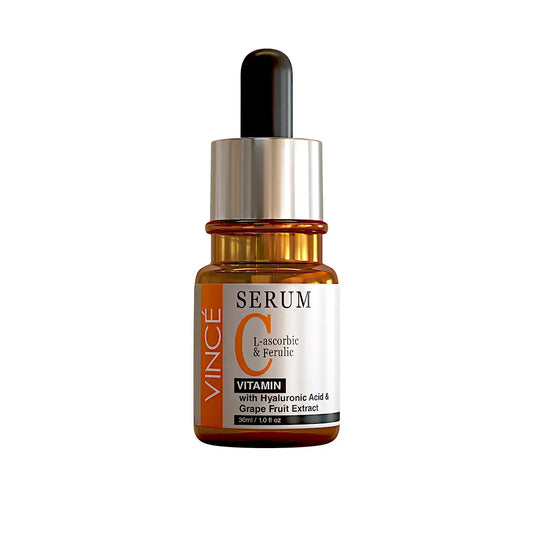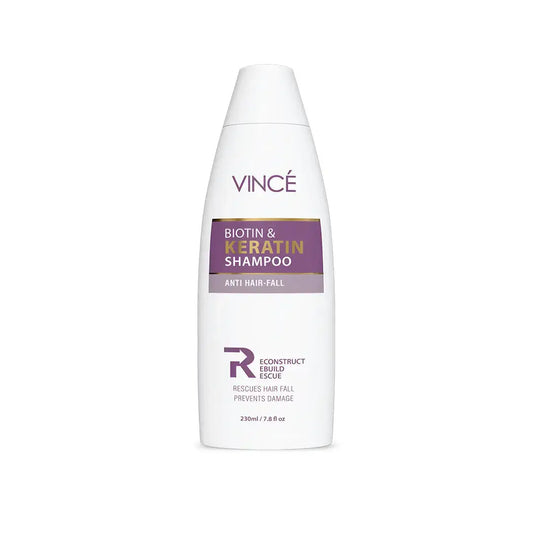Vitamin C Serum vs Hyaluronic Acid Serum: Which Should You Use?

Serums penetrate deeper to deliver concentrated active compounds, infusing your skin with vitality and well-being with every drop. Ask dermatologists from all around the globe to list down their top recommended serums. Undoubtedly, most will feature the benefits of Hyaluronic acid and the brightening presence of Vitamin C serums. And here emerges the genuine debate: Vitamin C serum vs Hyaluronic serum.
Vitamin C serum with hyaluronic acid individually embarks your skin on its unique journey, but both converge on one end goal – Revitalized skin. Where Vitamin C contributes with its antioxidant properties, Hyaluronic Acid for Skin is well-known for its hydrating benefits.
So, in the ongoing discussion of vitamin C vs hyaluronic acid for skincare, this article aims to Compare Vitamin C and hyaluronic acid. It will help you make an informed call based on your skincare needs.
Hyaluronic Acid Properties
The hyaluronic acid properties let your skin enjoy the following benefits:
- Deep hydration and moisturizing
- Promotes youthful and radiant complexion
- Aids in wound healing
- Smooths out wrinkles and fine lines
- Calms and reduces redness
- Helps manage eczema
Vitamin C Properties
Powered with the vibrant brilliance of citrus, Vitamin C is a brightening elixir that illuminates your complexion and ensures your youthfulness transcends time.
By applying Vitamin C serum, your skin will experience the following benefits:
- Protection from damaging UV rays
- Prevention of premature aging signs by reducing oxidative stress
- Enhanced Collagen production
- Brightening of dark spots and hyperpigmentation treatment
- Exfoliation of the skin
- Anti-inflammatory effect that helps to treat acne
Vitamin C Serum vs Hyaluronic Serum
A perfect pick that best suits and nourishes your skin is quite overwhelming. And sometimes, the impressive benefits of these serums spark a debate about Hyaluronic acid vs Vitamin C serum. So, we compare Vitamin C and hyaluronic acid, two powerful ingredients, to uncover their respective roles and benefits in achieving rejuvenated skin.
Functionality Overview
Vitamin C and hyaluronic acid serums work in their ways to bring plenty of benefits for healthier-looking skin. However, comparing Vitamin C and hyaluronic acid serum's primary role influences one to incorporate these products into their skincare routine.
The fundamental job of Vitamin C serum is to repair your skin, addressing issues like sunburns, scars, aging signs, and even acne. It helps to even out skin tone and effectively treat hyperpigmentation.

In contrast, hyaluronic acid serum is renowned for intense and lasting hydrating and moisturizing. While it may seem straightforward, lack of moisture leads to skin concerns, including compromised collagen production and the appearance of wrinkles and fine lines. Especially for individuals with dry and sensitive skin, hyaluronic acid deals with moisture retention issues, making it softer and glowing.
Hyaluronic acid vs Vitamin C serum: Anti-Aging Effects
Multiple factors contribute to the signs of aging, like dryness, sun exposure, diminished skin elasticity and collagen production. To address the concern of aging skin, both Vitamin C and Hyaluronic acid serums target different factors, individually playing a distinct role in reducing wrinkles and fine lines.
Vitamin C serums help prevent signs of premature aging by offering protection against UV rays. They combat the wrinkles caused by the sun’s UV rays, known as photoaging, delaying the appearance of these signs.
Deep hydration is one of the hallmark Hyaluronic acid properties, leading to a significant reduction in wrinkles and fine lines. Hyaluronic acid serum smooths out the skin texture by retaining moisture and clears the signs of aging over time.
Important Link: Vitamin C Serum vs Retinol: Which is Better?
Hyaluronic acid vs Vitamin C serum: Collagen Synthesis
Collagen production is another significant contributor to skin tightness and firmness. Vitamin C accelerates this production, improving skin texture and elasticity. Meanwhile, the presence of hyaluronic acid creates a favorable environment that promotes the synthesis of collagen.
Additionally, by maintaining optimal hydration, hyaluronic acid serums pave the way for improved skin elasticity and overall health.

Consider Your Skin Type
Although Vitamin C and hyaluronic acid serums are suitable for all skin types, one may be preferable over the other based on an individual’s skin type.
Dry Skin
Hyaluronic acid serum’s ability to attract and retain moisture makes it the top choice for individuals with dry and flaky skin.
Oily Skin or Combination skin
Oily skin also needs a fair share of moisture that hyaluronic acid can provide without excess grease. Among vitamin C serum vs hyaluronic serum, Vitamin C is better equipped to control excess oil production and less likely to leave a greasy feel to your skin.
Pairing Vitamin C Serum With Hyaluronic Acid
An optimal skincare routine prefers to pair vitamin C serum with hyaluronic acid for potent, balanced results. Together, the two ingredients can maximize skincare benefits with minimal risks. They work in perfect harmony to hydrate, protect and repair aging skin.
Additionally, they complement each other due to their contrasting traits. They amplify each other’s benefits to get noticeably improved skin health compared to using the ingredients alone. When used in excess, Vitamin C can cause irritation and dryness.
So, pairing vitamin C serum with hyaluronic acid will tone down its aggressive nature. The combination helps the skin to heal and nourish by creating a moisture barrier.
Layering Vitamin C with Hyaluronic Acid for Skin
For maximum benefits from both serums, their application order matters a lot:
- Cleanse your face with a reliable face wash. Opt for Perfect 30's Face Wash or Vitamin C Face Wash, as they enhance the efficacy of both serums.
- Apply Vitamin C serums first and let it absorb fully to your skin before layering another serum. It usually takes 1-2 minutes.
- Follow with hyaluronic acid by layering it on top of Vitamin C serum. It will blend perfectly with Vitamin C for additional hydration and skin protection.
- Complete the routine with a moisturizer, and if it's daytime, apply sunblock.
Important Link: Vitamin C Serum vs Niacinamide Serum: What’s the Difference
Conclusion
With all their differences, both Vitamin C serums and hyaluronic acid have distinct abilities to cater to specific skincare needs. Vitamin C is well-known to be a shield against UV damage and boost collagen production.
On the other hand, hyaluronic acid is the best serum for intense moisturization that ensures radiant and supple skin.
Concluding the vitamin C serum vs hyaluronic serum debate, the best answer is, why not have both?
Both Vitamin C and hyaluronic acid are potent ingredients and deliver their unique advantages. Together, they form a power combo that works in synergy for immediate results.
However, always apply Vitamin C first, then after it gets fully absorbed, use hyaluronic acid on top.
Frequently Asked Questions (FAQs)
Q1. Vitamin C serum vs hyaluronic serum for wrinkles?
Comparing vitamin C and hyaluronic acid, both have a distinct role in tackling wrinkles. Vitamin C is mainly associated with handling premature signs of aging, whether wrinkles or fine lines, by protecting from UV rays. On the other hand, Hyaluronic acid plumps and hydrates the skin, enhancing skin elasticity and tightening wrinkles.
Q2. Which is better, vitamin C or hyaluronic acid serum?
The choice of vitamin C vs hyaluronic acid for skin care is based on individual needs. Vitamin C is an antioxidant that neutralizes free radicals, boosts collagen production, brightens the skin, and treats hyperpigmentation. The hyaluronic acid serum is optimal for dry skin as it maintains hydration, balances skin texture, and enhances glow.
Q3. Is it OK to use vitamin C serum and hyaluronic acid together?
It is preferable to pair vitamin C serum with hyaluronic acid for an enhanced skincare routine. Always apply Vitamin C first, let it absorb for 1-2 minutes, and then apply Hyaluronic acid on top. Vitamin C, with its antioxidant power, neutralizes the free radicals and brightens your complexion, while Hyaluronic acid keeps your skin hydrated and plump.
Q4. What is better than vitamin C serum?
If you want a replacement of Vitamin C with something milder that is equally beneficial for sensitive skin, Niacinamide closely mimics many of its benefits. Retinol makes an excellent alternative for individuals seeking a more targeted anti-aging solution. Additionally, among Vitamin C serum or hyaluronic acid, the latter is superior in its properties of moisture retention.
Q5. Does hyaluronic acid lighten skin?
Hyaluronic acid properties include managing the hydration and water quotient of the skin, which helps to plump and smooth it. As the skin texture improves, it eventually enhances the skin’s overall health and impacts brightness and glow. However, when comparing Vitamin C serum vs Hyaluronic serum, Vitamin C is better equipped for skin lightening.



